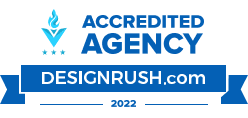As the clock struck midnight and we plunged into 2023, the world of work continued to evolve, with remote work becoming the norm rather than the exception for many businesses worldwide. The COVID-19 pandemic thrust us into a digital-first era, accelerating a shift towards remote work that was already underway. This unprecedented transition has not only altered the physical boundaries of our workplaces but has also ushered in a new vocabulary that shapes our understanding of this evolving landscape.
This new lexicon, often viewed as jargon, is not merely a collection of buzzwords. It encapsulates the nuances and complexities of virtual work, providing a framework for how we comprehend our new work environments. The language we use shapes our understanding and influences our perceptions. In this blog post, we’ll decode this jargon, examine its impact on our perception of remote work, and explore how we can leverage this understanding to navigate the ever-evolving work landscape more effectively.
Breaking Down the Jargon
The language we use shapes our understanding and influences our perceptions. In the remote work context, jargon provides a framework for how we comprehend our new work environments. Let’s start with the term “remote work” itself. At its core, it refers to a flexible work model where professionals do not commute or travel to a central place of work. They can work from home, in a café, or anywhere else in the world with an internet connection.
Another common term is “telecommuting”, originally coined in the 1970s when technology first began to allow workers to work from home or satellite offices. The term, implying the bridging of distance through technology, has been largely replaced by “remote work,” which more accurately describes the flexibility and autonomy of this work arrangement.
“Digital nomads” represent a segment of remote workers who choose to work while traveling, taking the idea of remote work to an entirely new level. In a digital nomad’s lexicon, you’ll find “workation,” a blend of work and vacation, where work and leisure coexist.
“Distributed teams” refer to groups where members are geographically scattered but work together towards common goals. They’re often synonymous with remote teams but can also include teams that operate across different office locations.
The Power of Language
The evolution of language in remote work is not merely a linguistic phenomenon; it influences how we perceive our roles and our work environment. The shift from “telecommuting” to “remote work” signifies a shift in power dynamics. No longer are we merely extending the office to our homes; we’re establishing a new normal where work can happen anywhere.
Likewise, terms like “digital nomad” and “workation” are altering our understanding of work-life balance. They’re challenging the traditional compartmentalization of work and personal life, instead promoting a blend that can result in greater satisfaction and productivity.
“Distributed teams” is another powerful term. It implies equality, with no central hub of power. It encourages a more democratic style of team management and communication, where each team member, regardless of location, has an equal say.
The Challenges Ahead
This new language is not without its pitfalls. The conflation of work and personal life, as suggested by “workation,” can lead to an “always-on” culture, potentially escalating stress levels and burnout. Indeed, a survey conducted by the Mental Health Foundation, found that 60% of employees working remotely during the pandemic experienced a significant increase in their work-related stress. This is often associated with the blurred boundaries between professional and personal life.
Similarly, the term “distributed teams” might imply equality, but it also brings with it the challenge of maintaining effective communication, collaboration, and cohesion among team members who may never meet in person. These challenges highlight the need for careful planning and effective management, to ensure the smooth functioning of distributed teams in the remote work setup.
The Ethical Implications
The evolution of remote work language raises crucial ethical questions. How should companies manage the blurred boundaries between work and personal life? How can they ensure fair treatment for all in a distributed team setup? Navigating these questions requires companies to prioritize ethical business practices and employee well-being, creating a work culture that respects autonomy while providing sufficient support.
Redefining Work: Embracing the Future
Despite the challenges, the potential benefits of remote work are undeniable. The key is to use the language of remote work to shape a future that benefits both companies and employees. Let’s redefine “workation” to mean not an “always-on” culture, but a work model that truly allows flexibility and leisure time. Let’s view “distributed teams” not as a hurdle to communication, but as an opportunity to leverage diverse perspectives and create a truly global workforce.
The Language of Solutions
With the challenges presented by remote work come new terms that signify solutions. “Asynchronous communication”, where team members communicate without expecting immediate responses, encourages a more balanced approach to work, reducing the stress of instant communication.
“Virtual water cooler” has emerged as a phrase signifying informal virtual spaces where team members can connect on a personal level, helping to build camaraderie and nurture relationships within distributed teams.
“Digital wellness” is another crucial term in the remote work lexicon, referring to the practice of maintaining mental and physical health in a digital work environment. It’s a reminder for companies to prioritize their employees’ well-being amidst the digital revolution.
In Conclusion
The language of remote work plays a significant role in shaping our understanding of the virtual work landscape. As we continue to adapt and evolve in this digital-first era, it’s essential to comprehend this lexicon, appreciate its implications, and use it to guide our navigation through the world of remote work.
From “telecommuting” in the 1970s to “workations” and “digital wellness” in 2023, the jargon of remote work tells a story of transformation, challenges, and resilience. It’s a story of how we’re continually redefining work, striving to balance productivity with personal well-being, autonomy with collaboration, and innovation with sustainability.
By embracing this language and its implications, companies and employees alike can thrive in the ever-evolving landscape of remote work. The challenge lies in ensuring that the language we use fosters a healthy, inclusive, and productive work environment. In the end, it’s not just about speaking the language; it’s about living it.









